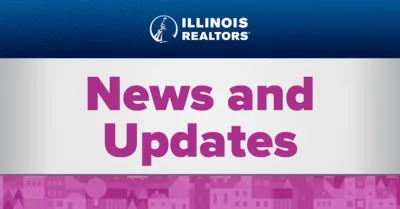Hot on the Hotline: Commissions, who has the legal right to list the home and social media advertising

Question: I have an agent that recently moved to a different brokerage. I would like to pay this agent her commission for a deal that she worked on that closed after she left our brokerage. May I still pay this agent even though I am no longer her sponsoring broker?
Answer: Yes, based on the scenario you presented; you may pay that agent even though you are no longer her sponsoring broker. The general rule states that no licensee sponsored by a broker shall accept compensation for the performance of licensed activities except from the broker by whom the licensee is sponsored. However, Section 10-5 (a) of the Real Estate License Act does allow a non-sponsoring broker to pay compensation directly to a licensee sponsored by another, or a person who is no longer sponsored, if the payments are made pursuant to terms of an employment or independent contractor agreement that was previously in place between a licensee and the non-sponsoring broker and the payment is for licensed activities performed by that licensee while previously sponsored by the now non-sponsoring broker.
This same section of the Real Estate License Act will also apply in situations where a licensee has passed away or retired and is owed compensation for licensed activities that occurred during their time at the brokerage. Payments due to a deceased agent should be made payable to their estate and not to specific beneficiaries or heirs.
Question: I have been contacted by a client that is going through a divorce and would like to list her home for sale. However, the soon to be ex-husband still lives in the home. The client is telling me that ‘she gets the house in the divorce’ and wants to sell it. How do I proceed here?
Answer: Is the home currently tied up in the divorce proceedings? Do you truly know who has the legal right to list the home and who will be required to sign the deed and closing documents to complete the transaction? In this scenario, the husband will most likely have to sign off on the sale of the home to release his homestead rights. Will the husband cooperate when you schedule showings? Does the sale require court approval? These are questions that you will need to ask prior to listing the property. The divorce settlement agreement may call for a certain disposition of the home and/or the proceeds from the sale. However, do not try to interpret court orders and filings on your own. Request written documentation from your client’s attorney concerning the status of the home and to confirm that your client has the authority to list and sell the home. You will want to ensure you have the husband’s cooperation for the transaction. This may mean getting confirmation from the husband or his attorney that they agree with the sale of the home. The last thing you want to hear leading up to the closing date is that the husband was supposed to sign off on the listing agreement, purchase contract and closing documents – and is now stating he “won’t sign anything” and is holding the closing hostage. Emotions can run high between the parties in dissolution proceedings.
Also, remember that while both are still legally married and both on the title, both wife and husband are your clients and you will owe the same legal duties to both of them. This includes sharing information with both equally.
Question: May I share another agent’s listing on my social media accounts? These would be listings from agents within the same brokerage but also from outside brokerages.
ANSWER: Article 12 of the Code of Ethics states that REALTORS(R) shall be honest and truthful in their real estate communications and shall present a true picture in their advertising, marketing and other representations. Standard of Practice 12-10 prohibits REALTORS(R) from presenting content developed by others without either attribution or without permission. If posting another agent’s listing from within your same office, I would recommend reviewing your office policy to see if it addresses sharing listings on social media. Even if you are allowed to do so by office policy, I think the best practice would be to obtain permission from the agent and to make sure that the listing is properly attributed to that listing agent and/or team.
If the agent is NOT in the same office, permission must be sought under Section 1450.715 of the Rules to the Real Estate License Act which states as follows:
a) Deceptive and misleading advertising includes, but is not limited to, the following: ….1) Advertising property subject to an exclusive listing agreement with a sponsoring broker, other than the licensee’s sponsoring broker, without the permission and identification of the sponsoring broker with the exclusive listing…”
The sponsoring broker may also advise or get their client’s permission, even if not required per the exclusive listing agreement, to allow the listing to be shared by another brokerage’s social media. Proper attribution should be provided to the listing agent and/team and the sponsoring broker. Will the ordinary consumer misunderstand the posting and believe it to be your own listing? Or have you made it clear that you are not the listing agent? Sharing another company’s listing on a social media platform is not covered by your MLS’s IDX policy where you are allowed to include the data feed on your own website. Be sure to review these rules, too.
About the writer: Prior to joining Illinois REALTORS® in 2022, Victoria (Vicki) Munson was an attorney in private practice focusing on real estate and estate planning matters. She enjoyed assisting buyers and sellers in bringing their transactions to the closing table. Victoria earned her bachelor’s degree from Western Illinois University and her Juris Doctor from The John Marshall Law School.















